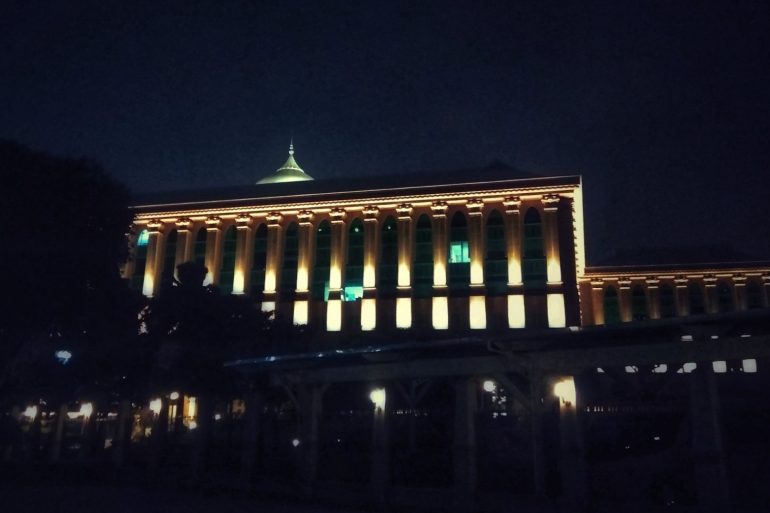Can the King refuse to appoint a Prime Minister chosen by the MPs?
The answer is ‘No’.
His Majesty the King cannot ignore, delay or refuse the appointment of a Prime Minister, if the candidate has the support of the majority of the MPs in the House of Representatives.
[1]. Why is this so?
This is so because of several reasons.
First, let us deal with our Constitution.
Article 40(2) states:
‘[The King] may act in his discretion … ‘(a) the appointment of a Prime Minister….’
[2]. The word ‘May’ means the King can say ‘No’
This gives one the impression, some jurists argue, that the King has the power to reject the appointment of a properly qualified candidate. Is this true?
The answer is a ‘No’.
[3]. There is no such discretion: Article 43(2)(a)
Any discretion that article 40(2) appears to grant to the King is cut down by a specific clause that deals with the appointment of the Prime Minister.
Article 43(2)(a) states:
‘43. (1) [The King] shall appoint a … Cabinet of Ministers… to advise him in the exercise of his functions.
(2) The Cabinet shall be appointed as follows, …
(a) [The King] shall first appoint as … Prime Minister … a member of the House of Representatives who in his judgment is likely to command the confidence of the majority of the members of that House;…’.
[4]. The Federal Constitution makes the King’s duty compulsory
The constitutionally correct position is, there is no such discretion.
This is because the imperative word ‘shall’, occurs twice in Art 43(2)(a).
The operative part of Art 43 says, ‘the King shall first appoint as Prime Minister…’ such a candidate.
So any contrary discretion given to the King in Art 40(2) is cancelled out by Article 43(2).
[5]. Next, Malaysia follows the UK’s Westminster system
In the UK, the monarch does not interfere in the constitutional process of appointing, as prime minister, a candidate who has the majority support of the members of the UK House of Commons.
[6]. The 1689 UK Bill of Rights vested the power to rule into the hands of the People
The Bill granted the UK House of Commons the right and power to rule the nation.
So the nation is to be ruled by the ‘commoners’ – meaning the people or ‘rakyat’ – not a monarch.
[7]. Then, two decades later, came the 1700 Act of Settlement
By that Act, the right to rule became entrenched as UK law. The principle was afterwards confirmed by several Acts of the UK Parliament and again, over time, embedded by Parliamentary Conventions. 1See Erskine May, ‘Parliamentary practice’, 24th Ed., p.3
[8]. These principles became part of our law when our Constitution was created
So, these and many other aspects of the UK law and Parliamentary conventions. were later confirmed by the Malaysian constitution.
The Federal Constitution is ‘the supreme law’ of the Federation.2Article, 4, Constitution
The Federal Constitution makes the monarch and the royal houses subject to the Federal Constitution e.g. the King is in fact paid out of the Public Purse (we can see an e.g. in Art. 35).
[9]. Parliamentary conventions …
Conventions are long-established customs, form part of our law and became part of our legal structure.
For all intents and purposes, Conventions are as good as law.
And therefore, any discretion granted to the King in the appointment or indeed the removal of the Prime Minister, or the Cabinet, mind you, is non-existent.
[10]. So, therefore …
Gathering all the strands of these legal principles, one can conclude that the King cannot refuse to appoint, delay the appointment, or decline to grant an audience for appointing a properly qualified candidate as Prime Minister – if that candidate enjoys the support of the majority of the MPs of the Dewan Rakyat.
[The author wishes to express his gratitude to Olympian efforts of the Japanese artist, En. Samad Hassan, KN Geetha, JD Prabhkirat, GS Saran, Wan Nursalena Wan Abdullah, Nathan Sithambaram and ‘Rajan’ Ratna Kumar.]





